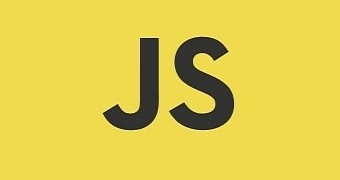Allen Wirfs-Brock, Project Editor of the ECMAScript Language Specification, has announced via his Twitter account that the new version of JavaScript, also known as ECMAScript 6, is now officially complete and available to the public.
Four years after ECMAScript 5.1 came out, this new release is not only twice the size of the previous standard but it also completely revamps JavaScript, providing a slew of new features that will make writing JavaScript code faster and more efficient.
It's pretty safe to say that if you learned JavaScript a couple of years ago, you wouldn't be able to recognize it anymore, as the new JavaScript specification comes with support for classes, modules, promises, generators, maps, sets, tuples, pattern matching, and traits.
This allows developers to write more complex JavaScript code without having to use all kinds of tricks, polyfills or even transpilers, to convert more complex code written in other programming languages to JavaScript and then run it in the browser.
New versions of the JavaScript language specification will arrive on a yearly basis from now on
The new version of JavaScript, previously dubbed ES6 by most developers, will also be known from now on as ECMAScript 2015, with future versions to be announced on a yearly schedule.
The best part is that the new JavaScript specification is fully compatible with previous ECMAScript 3, 4, 5, and 5.1 releases, so there's no "break-the-Web" Armageddon in sight.
Since the new standard was announced only yesterday, there's still no full support for it in major browser engines, this still taking some time to implement.
Fortunately, you can still use it right now, as the developer community has already produced a series of tools for converting ES6 to ES5 JavaScript syntax, the most famous of them being Babel (formerly known as 6to5).
The official language specification is available on the Ecma International website, in both PDF and HTML format.
If you don't get what's the "big deal," here are some tweets from the world's most famous software engineers, working for companies like Mozilla, Google, and Microsoft.
ECMAScript 2015 Language Specification has been approved as a standard by the Ecma International General Assembly http://t.co/PkKjkvoAiq
— Allen Wirfs-Brock (@awbjs) June 17, 2015
Woohoo! ECMAScript 6 approved! #ballinouttacontrol #bringthenoise #trashemandsmashem http://t.co/D84obpSgsW
— Matt Frisbie (@mattfriz) June 17, 2015
ECMAScript 2015 is out and approved! http://t.co/jHhWOF1xte pic.twitter.com/lkDrKF4Azt
— Felix Rieseberg (@felixrieseberg) June 17, 2015

 14 DAY TRIAL //
14 DAY TRIAL //